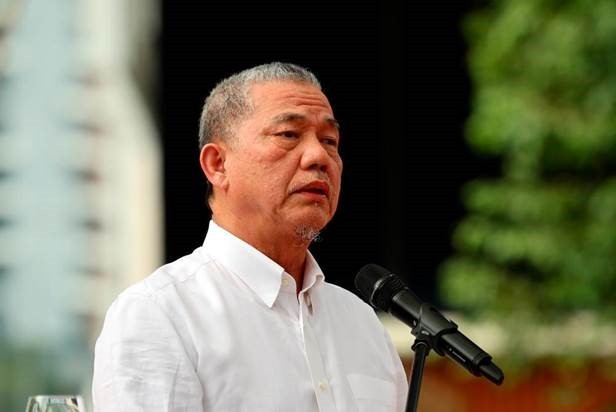
Image credit: The Sun Daily
LIMA (PERU), Aug 15 (Bernama) -- The relationship between Malaysia and ASEAN countries in the renewable energy sector is crucial for ASEAN to establish itself as a formidable bloc in the future, said Deputy Prime Minister Datuk Seri Fadillah Yusof.
Fadillah, also the Minister of Energy Transition and Water Transformation, highlighted the need to attract investment not only in downstream sectors but also in energy supply and transmission.
He stressed that these investments are substantial, underscoring the importance of strengthening ties within ASEAN.
"Joint ventures in these emerging sectors will benefit Malaysia and ASEAN as a whole, in shaa Allah. The European Union's strength lies in its unity and close cooperation on energy matters.
"Malaysia, with its considerable potential in renewable energy, must ramp up investment immediately," he told the media during his visit to Peru for the Energy Ministers' Meeting (EMM) under the Asia-Pacific Economic Cooperation (APEC).
The two-day meeting, hosted by Peru as APEC 2024 Chair, serves as the premier forum for APEC economic leaders overseeing energy development.
Fadillah also emphasised the need for greater investment across various aspects of the energy sector, including generation, supply, stability and sustainability.
He reaffirmed Malaysia's commitment to achieving net zero carbon emissions by 2050, despite contributing only 0.8 per cent of global emissions.
"Our goal is to increase our renewable energy share to 35 per cent by 2040 and 70 per cent by 2050, focusing on clean energy sources.
"Future power generation must incorporate hydrogen alongside gas, as hydrogen is a crucial energy source. As hydrogen becomes more accessible and economically viable, new power generation will increasingly use a combination of gas and hydrogen," he added.
During his visit from Aug 14-16, Fadillah will highlight Malaysia’s dedication to its energy transition efforts, ensuring a fair and inclusive process, and the nation’s ambition to achieve net zero greenhouse gas emissions by 2050.
Source: https://bernama.com/en/business/news.php?id=2329287

